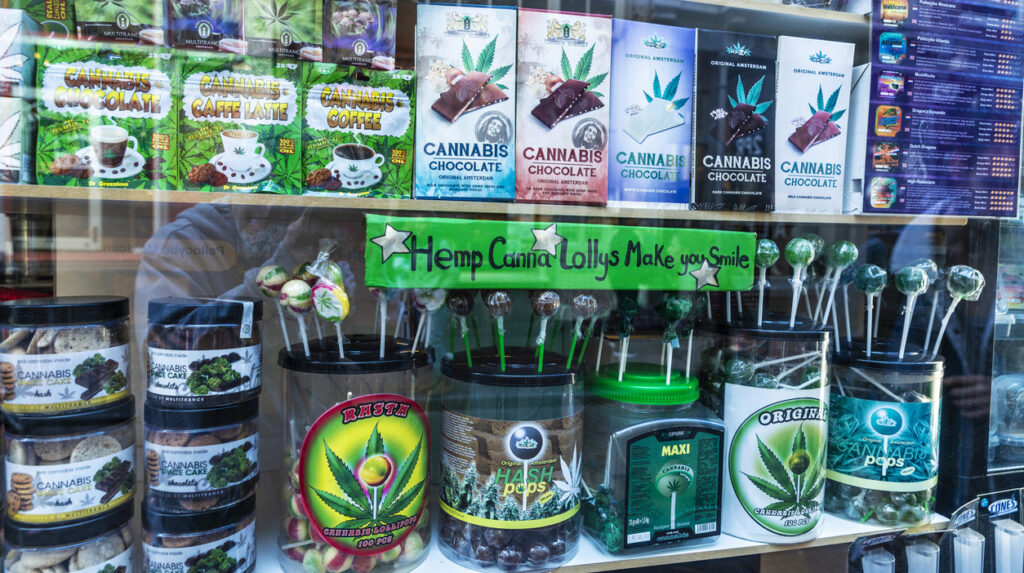
AN EFFORT in the U.S. Senate to close the hemp-derived THC loophole in the 2018 Farm Bill has stalled, leaving intact a provision that allows hemp producers to sell intoxicating products at ordinary retail outlets — even in states where cannabis sales are banned.
Language that would have addressed the loophole was removed from the fiscal 2026 Senate Agricultural Appropriations Bill before the measure cleared the chamber in late July after Sen. Rand Paul, R-Ky., threatened to block passage of the entire $27 billion agriculture spending bill over its inclusion. The move put him at odds with his fellow Kentuckian, Sen. Mitch McConnell, R-Ky., who had pushed for the ban to be included in the bill.
While the hemp industry has celebrated the development, there will be renewed efforts to address the Farm Bill loophole due to reports of children being sickened after consuming products packaged to resemble candy and that some hemp-derived products are stronger than marijuana.
The Kentucky Showdown
Earlier in July, the Senate Appropriations Committee had approved language that would have redefined hemp under federal law to separate “industrial hemp” from “hemp-derived cannabinoid products” and include THCA in total THC calculations. The provision would have effectively banned most intoxicating hemp products at the federal level.
That language was stripped from the full Senate version after Sen. Rand Paul, R-Ky., introduced an amendment to remove it.
The change was adopted as part of a package of last-minute changes accepted by Sen. Susan Collins, R-Maine, chair of the Appropriations Committee. The bill then passed on an 87-9 vote in the full Senate.
While critical of the move, McConnell said he allowed its removal to avoid jeopardizing the larger funding measure. He vowed to continue working on legislation to remove the loophole, which he has said was not part of the legislative intent when he sponsored the Farm Bill.
Paul Floats Alternative Plan
Paul has proposed his own approach through the Hemp Economic Mobilization Plan (HEMP) Act of 2025, which would amend the federal definition of hemp to raise the allowable THC limit from 0.3% to 1% and shift compliance testing from the hemp plant to finished products.
While Paul has sponsored the legislation in previous sessions without passage, he argues the change would reduce burdens on farmers and allow the industry to expand.
House version still includes the ban
Despite the Senate action, the fight is not over. The House Appropriations Committee in June advanced its own agriculture spending bill that retains the hemp ban, authored by Rep. Andy Harris, R-Md. That measure would redefine hemp and prohibit products containing intoxicating cannabinoid levels.
Both chambers are expected to reconcile their bills before the Sept. 30 fiscal year deadline, meaning the ban could still be inserted into the final legislation.
For now, the Farm Bill loophole remains, but with both chambers showing interest in reform, further legislative maneuvering is likely. This is unlikely to be the final battle over federal regulation of intoxicating hemp products.
